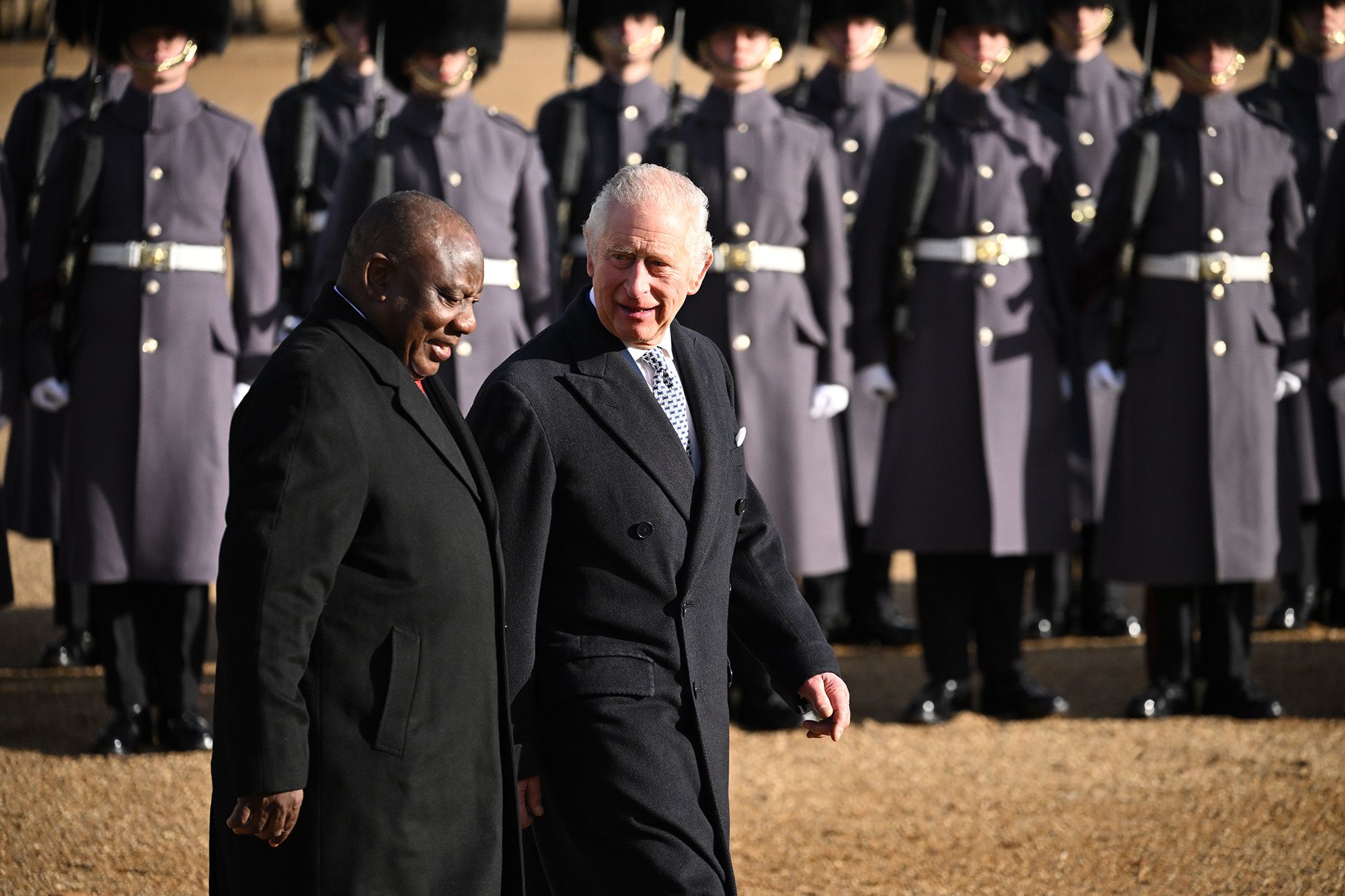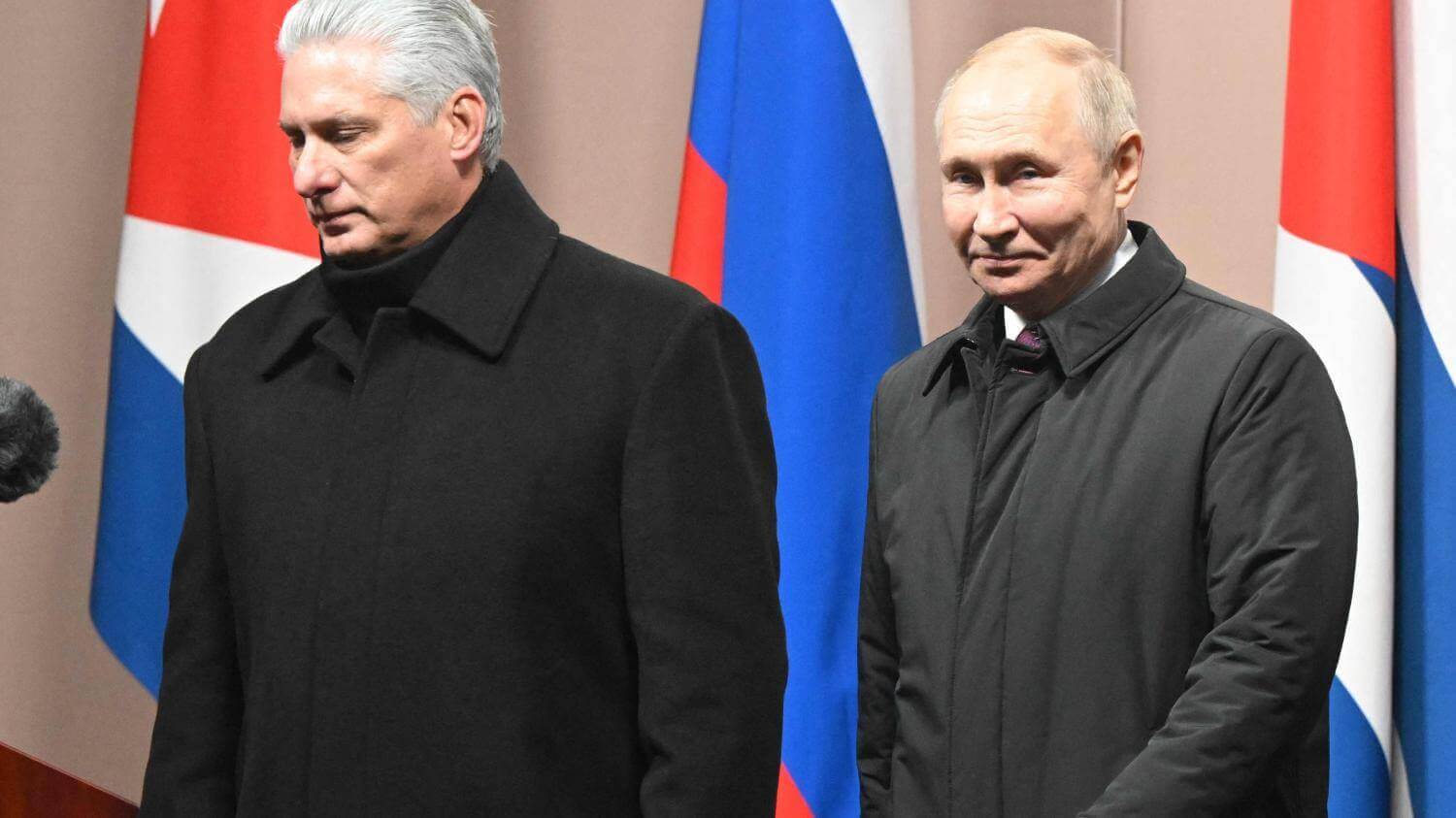South Asia
Pakistani Minister for Information and Broadcasting Marriyum Aurangzeb said on Tuesday that former Prime Minister Imran Khan would not be allowed to instigate political instability. She lamented the devastation caused by the increase in unemployment and insufficient economic policies during Khan’s tenure, which she said began just as Pakistan’s national economy had stabilised. [APP Pakistan]
India and the European Union convened for the ninth Foreign Policy and Security Consultations on Tuesday, discussing the progress on their trade and investment agreement. They also discussed counterterrorism and cybersecurity, highlighting the need to expand cooperation in security and defence. [Indian Ministry of External Affairs]
Central Asia and the Caucasus
On Tuesday, Uzbek President Shavkat Mirziyoyev met with his French counterpart Emmanuel Macron at the Élysée Palace in Paris. The two leaders agreed to expand bilateral ties, especially in the economic field, and accordingly signed over $6 billion worth of trade and economic agreements. [Fergana News]
Russian Foreign Minister Sergey Lavrov arrived in Armenia on Tuesday for a two-day visit to attend a Collective Security Treaty Organization (CSTO) meeting. Representatives are expected to discuss the “military-political situation” in member states and announce measures to further strengthen their collective security system. The CSTO is a Eurasian military alliance led by Russia and comprises Armenia, Belarus, Kazakhstan, Kyrgyzstan, and Tajikistan. [Public Radio of Armenia]
East and Southeast Asia
China hit out at United States (US) Vice President Kamala Harris’ decision to show her support for the Philippines’ territorial claims in the South China Sea, after she visited the Palawan island, which neighbours the disputed Spratly Islands territory. Chinese foreign ministry spokesperson Zhao Lijian said that while Beijing is not opposed to "normal interaction" between the US and the Philippines, such engagements must not be “damaging to other countries' interests or detrimental to "peace and stability in the region.” [Ministry of Foreign Affairs of the People’s Republic of China]
South Korea on Tuesday recorded over 70,000 new COVID-19 cases for the second consecutive day, with the Korea Disease Control and Prevention Agency warning that the numbers will continue to rise. 53 people also died from the coronavirus on Tuesday, meaning that South Korea has now lost 30,164 people to the virus. [Yonhap News Agency]
Europe
Sweden said on Tuesday that its prosecuting authority arrested two individuals suspected of spying, with one accused of “gross illegal intelligence activities.” While the prosecuting authority did not mention the name of the country the two individuals were spying for, they confirmed that their activities had been going on since 2013. A local newspaper, however, has claimed they are Russians who arrived in Sweden in the late 1990s. [Associated Press]
The British Charity Commission on Tuesday launched a statutory inquiry into the Islamic Centre of England, an organisation that promotes the religion and religious teachings across the Muslim community. In 2020, the regulatory authority issued a formal warning after an event eulogised Iranian army chief Major General Qasem Soleimani, who the British government had sanctioned. [UK Government]
Following a meeting with his German counterpart Robert Habeck on Tuesday, French Economy Minister Bruno Le Maire threatened to establish a “buy European act” to firmly retaliate against the United States’ (US) Inflation Reduction Act (IRA), which could impact European companies due to the tax benefits it accords to American-made goods. “When we look at the IRA, the status quo is unthinkable, a trade war would be irresponsible,” Le Mair stated, adding, “Europe has to defend its interests as a priority.” [Reuters]
Latin America and the Caribbean
Brazilian President Jair Bolsonaro has contested his defeat to Luiz Inácio Lula da Silva in the recently-held election, arguing that a number of votes should be annulled due to a ‘software bug’ on the country’s electronic voting machines. If Bolsonaro's request were to be granted, which appears unlikely, it would leave the outgoing president with 51% of the votes. In a tight runoff election last month, Lula defeated Bolsonaro with 50.9% of the votes. [Politico]
Russian President Vladimir Putin hosted his Cuban counterpart Miguel Díaz-Canel in Moscow on Tuesday. Putin said both the Soviet Union and Russia have “always supported the Cuban people in their struggle for independence and sovereignty” and opposed the United States’ 60-year-long embargo. Meanwhile, the Cuban leader offered his support for Russia's invasion of Ukraine, saying the war “has its origins in the fact that the US is manipulating the international community,” pointing to the North Atlantic Treaty Organization’s eastward expansion. [The Kremlin]

Middle East and North Africa (MENA)
The United Nations (UN) Human Rights Council on Tuesday said that Saudi Arabia has been conducting executions on a daily basis over the last two weeks, following reports that the Kingdom executed 17 men for drug-related offences last week. The Council said the “resumption of executions for drug-related offences in Saudi Arabia is a deeply regrettable step.” “We call on the Saudi authorities to adopt a formal moratorium on executions for drug-related offences, to commute death sentences for drug-related offences, and to ensure the right to a fair trial for all defendants.” [UN News]
Israel on Tuesday permitted Qatari company Energy Consortium to drill for natural gas in the offshore Kana-Sidon reservoir, which was part of a recently resolved maritime dispute between Israel and Lebanon. As per the deal, Israel would be able to make deals with energy companies to explore the field and receive 17% of the profits from the Lebanese-controlled reservoir since part of Kana is in Israel’s Exclusive Economic Zone. Israel has already signed deals with French and Italian companies TotalEnergies and ENI to begin exploration. [Jerusalem Post]
North America
The Supreme Court of the United States (SCOTUS) on Tuesday approved the release of former President Donald Trump’s tax returns from 2015 to 2020 to the House Ways and Means Committee after they refused Trump’s emergency petition to block a lower court’s order last month. The committee had sought the records to evaluate whether the Internal Revenue Service was assessing the presidential returns appropriately or whether new legislation was required. In a statement, committee chairman Richard Neal said, “This rises above politics, and the committee will now conduct the oversight that we’ve sought for the last three and a half years.” [Reuters]
On Tuesday, Canadian Minister of Foreign Affairs Mélanie Joly announced additional sanctions on 22 Belarusian officials and 16 companies involved in military manufacturing, technology, engineering, banking, and railway transportation for “facilitating and enabling Russia’s illegal invasion and attempted annexation of Ukrainian territory.” In a statement, Joly asserted, “President Lukashenko must cease being an instrument of the Russian regime.” [Global Affairs Canada]
Oceania
New Zealand is hosting World Trade Organization Director-General Ngozi Okonjo-Iweala this week. Minister for Trade and Export Growth Damien O’Connor noted that the ‘export-dependent’ country's exports have grown by 35% since 2017. The WTO chief will meet with Prime Minister Jacinda Ardern, O'Connor, Foreign Minister Nanaia Mahuta, Finance Minister Grant Robertson, and a number of business leaders. [New Zealand Government]
Australia’s annual State of the Climate report, jointly published by the Bureau of Meteorology and the Commonwealth Scientific and Industrial Research Organisation (CSIRO), has warned that Australia’s weather will become even more volatile in the years to come, warning of heavier droughts, heatwaves, floods, and bushfires. CSIRO climate science centre research director Dr Jaci Brown said, “Extreme events are going to keep happening, we need to start thinking about the next drought.”
Sub-Saharan Africa
Britain’s King Charles on Tuesday hosted South African President Cyril Ramaphosa, the first foreign leader to meet with the monarch since he ascended to the throne in September. Ramaphosa urged the United Kingdom to support South Africa's push to reform multilateral institutions and for richer countries to offer climate financing to developing nations. He stressed that this funding would not be “charity” but rather “compensation for the harm done—and the harm yet to be done—to people in developing economies as a consequence of the industrialisation that wealthy countries have had over many years.” [AFP]
The Malian junta has banned all non-governmental organisations that are either financed or supported by France, including humanitarian organisations. France has been forced to withdraw all of its troops from the country as its relationship with the junta continued to deteriorate, particularly over allegations that the military government has actively used Russian paramilitary company Wagner Group to commit human rights abuses. It is estimated, however, that at least 35% of Mali’s population is in need of aid. [Africanews]

